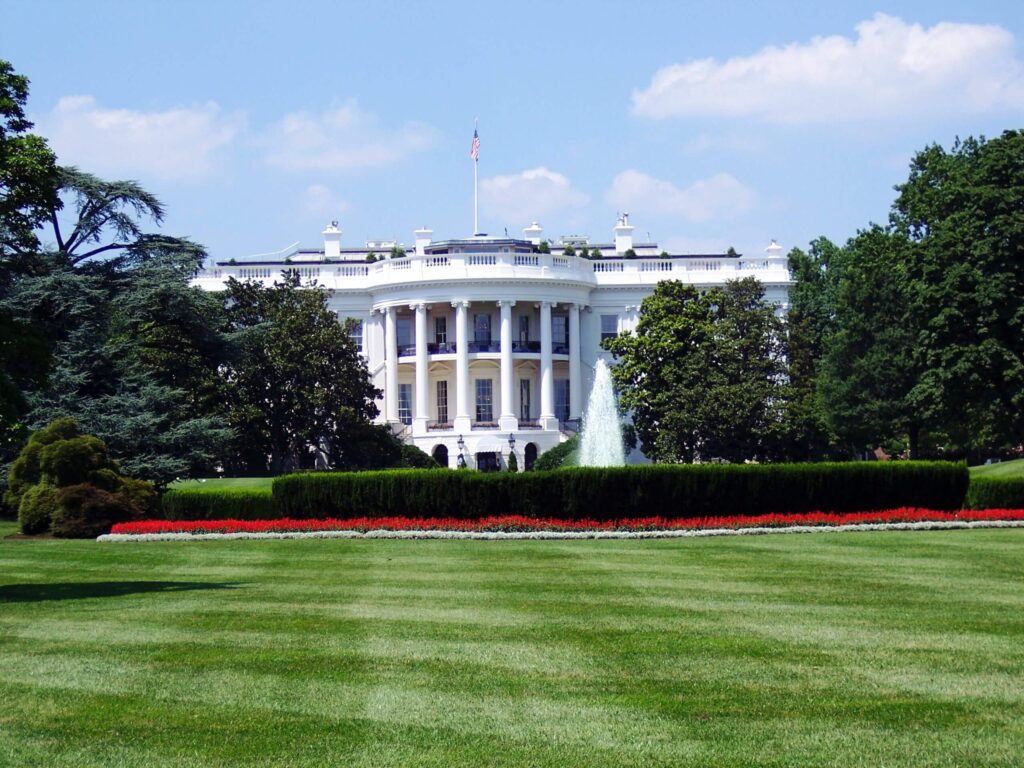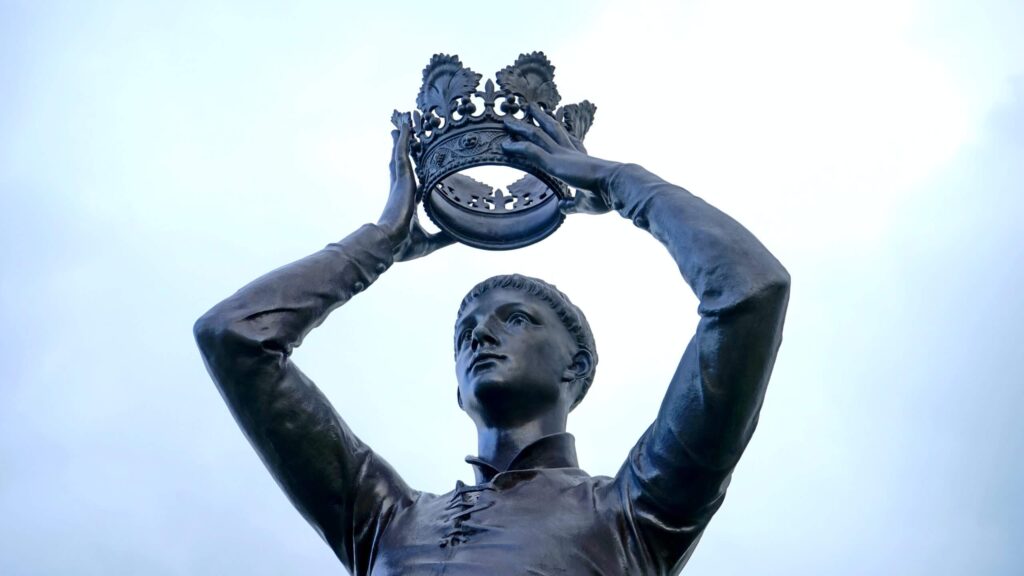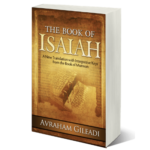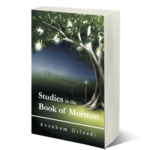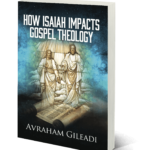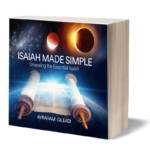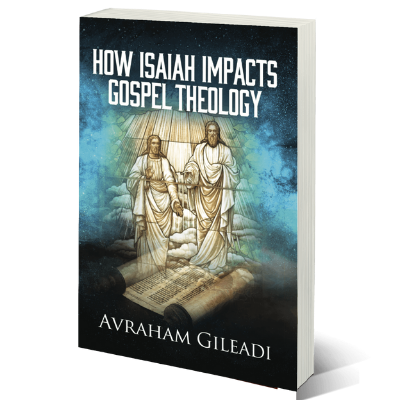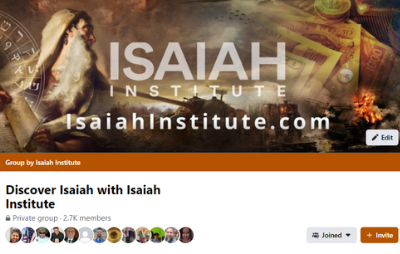Isaiah’s theology of creation, in effect, nuances the entire concept of God’s creation as an ongoing process that has operated for eons of time and that extends far into eternity. Within that continuum, Adam and Eve’s “creation” by no means constitutes a unique event. Rather, it accords entirely with the cyclical rebirth or re-creation of God’s children who ascend a spiritual ladder to heaven. The paradisiacal state Adam and Eve inherited, for example, is likewise inherited during the earth’s millennial age of peace by God’s elect, persons who attain the son/servant level of Isaiah’s spiritual ladder, who know God personally. Such individuals, therefore, become the equivalent of new Adams and Eves who may at some point themselves populate new worlds. From that level upward, moreover, all spiritual categories are male and female—“like a bridegroom dressed in priestly attire, or a bride adorned with her jewels” (Isaiah 61:10)—consistent with being reborn or re-created in the image and likeness of God.
Paul’s admonition that the saints become “new creatures” in Messiah (2 Corinthians 5:17; Galatians 6:15)—that they “put off the old man” and “put on the new [man] . . . after the image of him who created him” (Colossians 3:9–10; Ephesians 4:24), going “from glory to glory” and being “changed into the same image” of the “glory of the Lord” (2 Corinthians 3:18)—would in reality mean little if this re-creation or succession of re-creations to conform to the image of God was immediately realized by a believer in Messiah. Or, by the same token, if it failed to take into account that God is both male and female, that “neither is the man without the woman nor the woman without the man in the Lord” (1 Corinthians 11:11). Indeed, if “the kingdom of heaven is like a king who makes a marriage for his son” (Matthew 22:2), then that King and his Queen would surely be no respecters of persons but do likewise for any son who qualifies as an heir. How, otherwise, could that kingdom be a “kingdom of heaven”?
From these and similar such scriptural corroborations, we learn that Adam and Eve could not have inherited Paradise without their own prior spiritual ascent. Otherwise God would not be one—the same to each of his children—but instead be a changeable and variable God. Rather than isolate God’s creation of Adam and Eve as something unique or outside the realm of possibility for the rest of humanity, therefore, let us scrutinize its salient points and determine whether it follows a scriptural pattern. The Genesis account states that God “formed the man from the dust of the ground and breathed into his nostrils the breath of life” so that the “man became a living soul” (Genesis 2:7). Still, God didn’t create the man in the Garden of Eden but placed him there afterwards: “And Jehovah God planted a garden eastward in Eden and there he put the man whom he had formed” (Genesis 2:8). Moreover, God caused a “deep sleep” to come upon Adam, after which he brought him his wife Eve (Genesis 2:21–22).
Putting such scriptural data together, we must conclude that the story of Adam’s creation “from the dust” (Genesis 2:7) isn’t something entirely unfamiliar. In the resurrection from the dead, are people not also re-created “from the dust” when their bodies arise? Aren’t the dead, whose spirits have left this world, depicted as “sleeping in the dust” (Job 7:21; Daniel 12:2)? Ezekiel portrays the resurrection from the dead as God’s causing “breath” to enter into the dry bones of those who had passed away (Ezekiel 37:1–14; cf. Genesis 2:7; Moses 3:7). Isaiah describes comparable phenomena when he predicts that the bodies of God’s people will “awake” and “arise” from the dust at the end of the world (Isaiah 26:19) and that Zion/Jerusalem will “awake” and “arise” from the dust to divine empowerment (Isaiah 52:1–2). Isaiah’s pattern of the physical rebirth and re-creation of God’s people “from the dust” at their resurrection thus typifies their spiritual rebirth and re-creation as they learn to observe God’s law and word.
Like those who become God’s elect sons and daughters and inherit Paradise in the earth’s millennial age (Isaiah 51:1–3; 65:17–25), Adam and Eve must have had prior life experience and similarly ascended to the spiritual level of God’s elect. If not, God would be a capricious God who will not do for one what he does for another who fulfills the same covenantal requirements. In a similar vein, as God’s elect know God personally, and as Adam and Eve were evidently created or re-created from the dust on the level of God’s elect, anything less than that level must be considered less than being created in the image and likeness of God. That is suggested by the Genesis account itself, as nowhere does the scripture say that all human beings are created in God’s image and likeness, only Adam and Eve or those who know God face to face. That Adam and Eve knew God personally is evident from the fact that God walked and talked with them in the Garden of Eden before they were cast out (Genesis 3:8–10).
(From Endtime Prophecy: A Judeo-Mormon Analysis, 18–21.)


